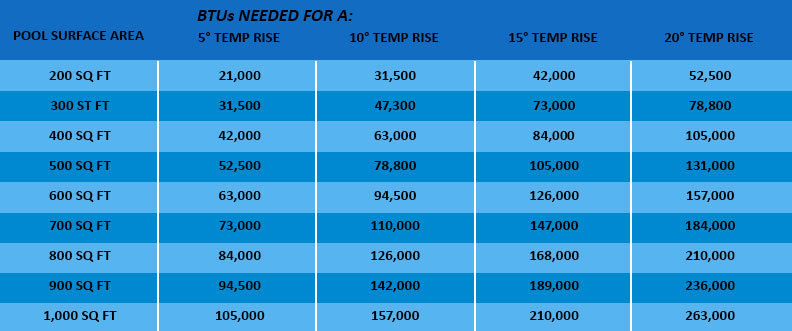
Extend your pool’s season by investing in a pool heater. Easily raise your pool water’s temperature by degrees at a time. Choose from a gas heater, an electric heat pump or a solar heater system. Whatever your needs are, you’ll be able to find the perfect heater for you and your pool.
If you have more questions about heaters or would like more information, visit our Buyer’s Guide and FAQ page on the topic.
The choice of the ideal heater for your needs depends on several factors and what aspects matter most to you. Firstly, consider your budget when selecting a heater. If you desire quick pool heating and intend to use it in colder climates (when the temperature falls below 50ᵒF), opt for a gas heater. However, note that operating costs will generally be higher. If you prioritize being environmentally friendly and seek a longer-lasting alternative to a gas heater, while still maintaining higher efficiency than a solar heater, an electric heat pump is a suitable option.
Nonetheless, keep in mind that you will have a higher upfront cost and won't be able to utilize it in extremely cold weather. If your priority is utmost environmental friendliness and you have ample sunlight available, a solar heater is the ideal choice. Nevertheless, be aware that this type of heater tends to be slower and requires direct sunlight.
The effectiveness of a heater is gauged by its heat production, which is measured in BTUs (British Thermal Units). This unit represents the amount of heat required to raise the temperature of one pound of water by 1ᵒF. A higher BTU rating indicates that the heater can raise the pool temperature faster and handle a greater workload.
While some solar heater product descriptions include a chart that says how many panels you’ll need for various pool sizes, this isn’t the case with all heaters. You’ll need to determine the minimum number of BTUs you need to heat your pool properly. This will require a little bit of math.
You’ll want to start by determining the square footage of your pool’s surface area.

If you get a heater with a higher BTU than the minimum, your pool will be heated faster. It’ll also use more gas or electricity.